An international clownfish export business founded by Changhua man Hsueh Yung-lin (薛雍霖) won him the Ministry of Agriculture’s annual award for the top 10 workers in the agricultural, fishery or animal industries.
The Changhua Fishermen’s Association also applauded Hsueh’s accomplishment, saying on Nov. 18 last year that the last time a Changhua County fishery worker won the award was 33 years ago.
Hsueh was a B-class student in junior-high school under the former ability grouping system, before he was admitted to National Lukang Senior High School’s Aquaculture Department. He later graduated from the Institute of Aquatic Bio-resources and Aquaculture at National Penghu University of Science and Technology with a master’s degree. He then started his own business breeding clownfish.
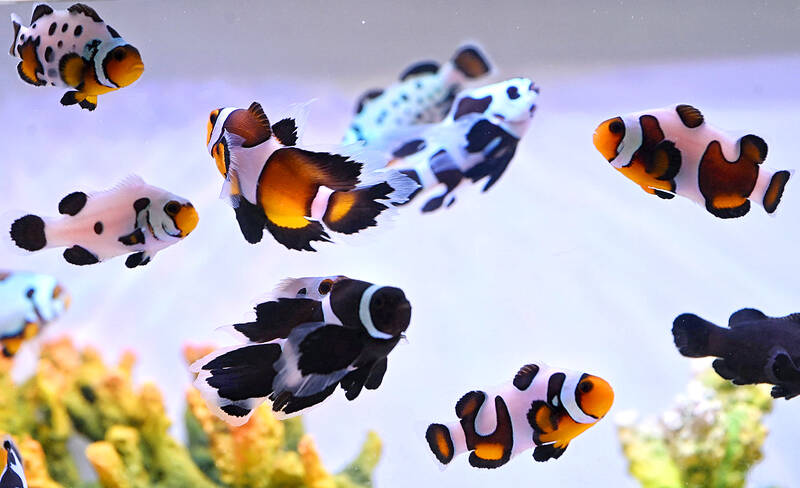
Photo: Chang Chia-ming, Taipei Times
Hsueh has cultivated more than 20 strains of clownfish, with 90 percent being exported abroad.
Although only 10 percent of his fish are sold to local buyers, they top the domestic clownfish market, with one in every two clownfish in Taiwan from Hsueh’s aquafarm.
There were many typhoons and a lot of rain last year, but his aquafarm was not affected much, as it has an indoor water-circulation system, Hsueh said.
Clownfish are a spectacular entry-level fish, he said, adding that to increase their exportability, strains with novel colors, such as black and yellow, were bred in addition to the more common orange-and-white strains.
Rare clownfish with splendid color patterns can be sold for up to US$200 each and are usually exported by air, Hsueh said.
The undertaking had a bumpy start, as his parents are not rich, and they are not a “fishery family,” he said.
However, Hsueh said he is grateful that he could stay in his favorite business breeding spectacular fish.
“Despite the hardships, I can forget all of my troubles just by watching a house full of the clownfish that I bred and cultivated,” he said.
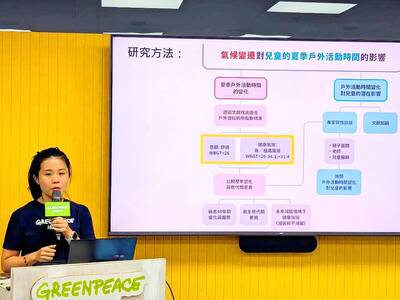
The government should improve children’s outdoor spaces and accelerate carbon reduction programs, as the risk of heat-related injury due to high summer temperatures rises each year, Greenpeace told a news conference yesterday. Greenpeace examined summer temperatures in Taipei, New Taipei City, Taoyuan, Hsinchu City, Taichung, Tainan and Kaohsiung to determine the effects of high temperatures and climate change on children’s outdoor activities, citing data garnered by China Medical University, which defines a wet-bulb globe temperature (WBGT) of 29°C or higher as posing the risk of heat-related injury. According to the Central Weather Administration, WBGT, commonly referred to as the heat index, estimates
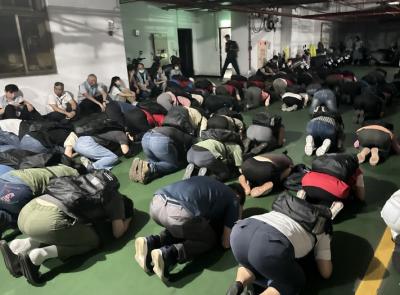
Taipei and other northern cities are to host air-raid drills from 1:30pm to 2pm tomorrow as part of urban resilience drills held alongside the Han Kuang exercises, Taiwan’s largest annual military exercises. Taipei, New Taipei City, Keelung, Taoyuan, Yilan County, Hsinchu City and Hsinchu County are to hold the annual Wanan air defense exercise tomorrow, following similar drills held in central and southern Taiwan yesterday and today respectively. The Taipei Mass Rapid Transit (MRT) and Maokong Gondola are to run as usual, although stations and passenger parking lots would have an “entry only, no exit” policy once air raid sirens sound, Taipei
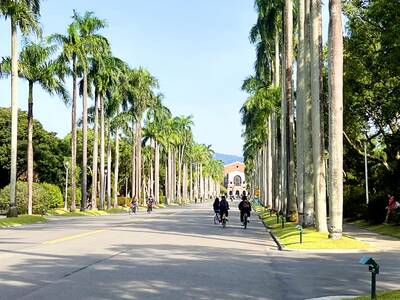
Taipei placed 14th in the Quacquarelli Symonds (QS) Best Student Cities 2026 list, its highest ever, according to results released yesterday. With an overall score of 89.1, the city climbed 12 places from the previous year, surpassing its previous best ranking of 17th in 2019. Taipei is “one of Asia’s leading higher-education hubs,” with strong employer activity scores and students “enjoying their experience of the city and often keen to stay after graduation,” a QS staff writer said. In addition to Taipei, Hsinchu (71st), Tainan (92nd), Taichung (113th) and Taoyuan (130th) also made QS’ list of the top 150 student cities. Hsinchu showed the
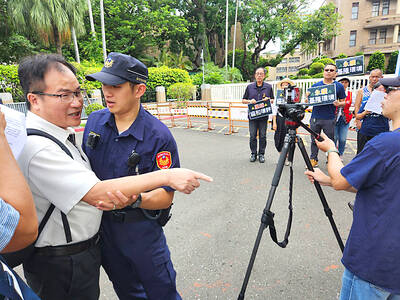
Environmental groups yesterday filed an appeal with the Executive Yuan, seeking to revoke the environmental impact assessment (EIA) conditionally approved in February for the Hsieh-ho Power Plant’s planned fourth liquefied natural gas (LNG) receiving station off the coast of Keelung. The appeal was filed jointly by the Protect Waimushan Seashore Action Group, the Wild at Heart Legal Defense Association and the Keelung City Taiwan Head Cultural Association, which together held a news conference outside the Executive Yuan in Taipei. Explaining the reasons for the appeal, Wang Hsing-chih (王醒之) of the Protect Waimushan Seashore Action Group said that the EIA failed to address